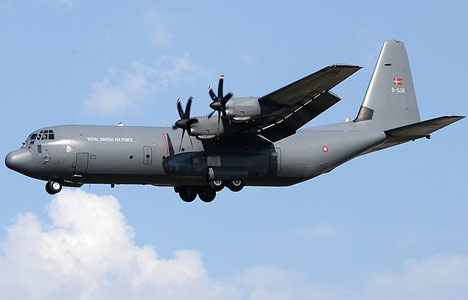AFGHANISTAN
Denmark out of Mali but back into Afghanistan
While a Hercules transport aircraft and 40 soldiers prepare to leave Mali despite the UN's request to extend the mission, Denmark agrees to send 76 men and three helicopters to assist German troops in Afghanistan.
Published: 27 June 2014 13:55 CEST

A Herculus transport aircraft and 40 personnel will be returning home from Mali. Photo: Aldo Bidini/WikiCommons
Denmark is pulling a military aircraft out of one conflict-stricken country while sending three helicopters to another.
The Air Force and foreign ministry confirmed yesterday that Denmark has turned down a UN request to remain stationed in Mali for an additional two months.
Denmark’s presence in Mali consists of one Hercules military transport aircraft and 40 military personnel.
The Mali mission was scheduled to last from February to June, and despite the UN request to remain on longer than planned, the Danish forces will be coming home.
“The aircraft and crew will, as planned, fill roles in a domestic structure,” an Air Tactical Command (Flyvetaktisk Kommando) spokesperson told Avisen.dk.
A team of approximately ten intelligence officers will remain in Mali.
According to revelations by Avisen.dk, the Danish effort in Mali was a pricey one. The soldiers were housed in a five-star hotel, resulting in a lodging bill of more than 7.5 million kroner ($1.4 million).
While the Mali mission winds down, Denmark has agreed to send three military transport helicopters and 76 soldiers to Afghanistan. The helicopters will be used by German soldiers based in Camp Marmal near Mazar-e Sharif. The number of Danish soldiers could be increased slightly to 80, a military spokesperson said.
Denmark ended its 12-year military engagement in Afghanistan on July 22nd of last year. Forty three Danish soldiers lost their lives in Afghanistan and the war cost a total of 15 billion kroner ($2.7 billion).
Url copied to clipboard!


 Please whitelist us to continue reading.
Please whitelist us to continue reading.
Member comments